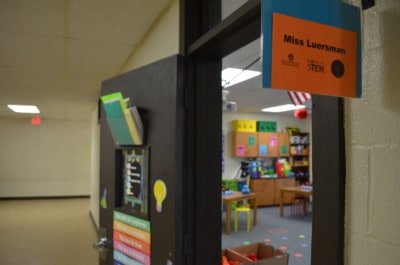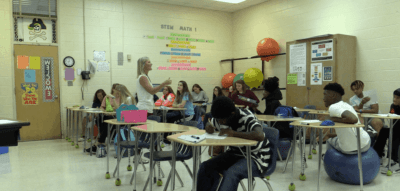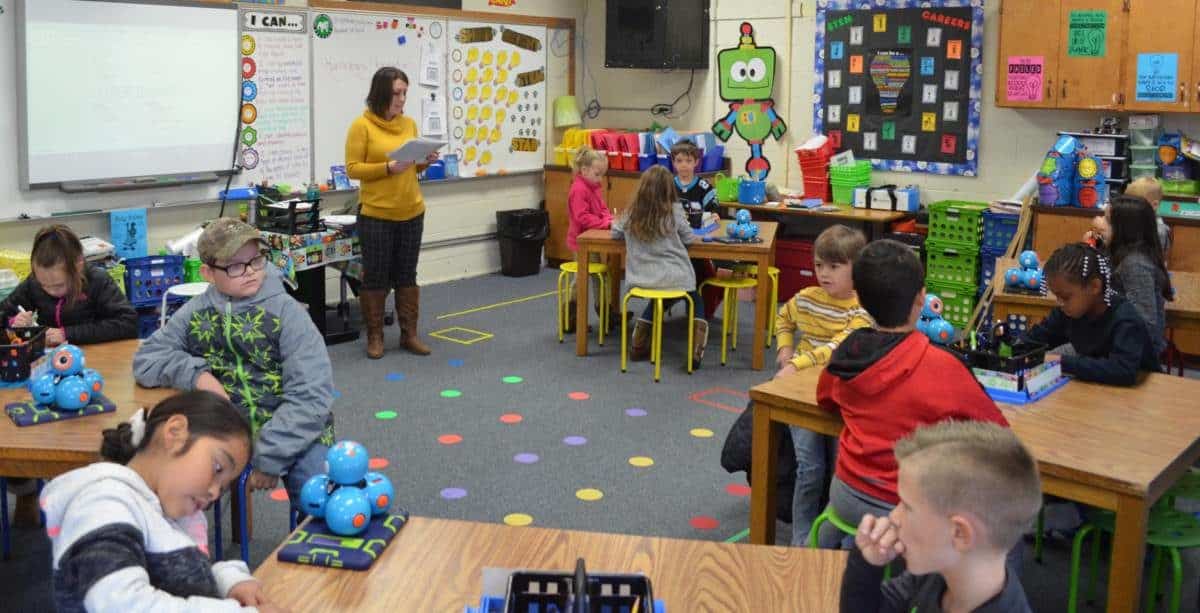

This piece is part of a series of profiles on great teachers. Click here to read our framing article, and click here to read our first profile.
Ashley Luersman was one of those nerds who always loved school. Those are her words. She said she always liked children and working with kids. And growing up in Michigan from the age of 9, she just enjoyed her school experience. She knew she wanted to be in school, in one way or another, for the rest of her life.
Now in her eighth year of teaching, Luersman is a K-5 STEM teacher at both Carthage and Cameron Elementary Schools in Moore County, so she is well on her way to that life in the classroom she so hoped for.
Her arrival in North Carolina was mostly by chance. She went through an educator preparation program at Grand Valley State University in Grand Rapids, Michigan and completed her student teaching in Michigan public schools. But finding a job as a teacher in her own state wasn’t a simple process.
“I really wanted to be a teacher, and I was applying everywhere, and it was really hard to find a job right away,” she said.
As luck would have it, a teacher from Carthage Elementary in Moore County came to Luersman’s student teaching end-of-the-year dinner to talk about what teaching is like, and she mentioned that there were openings in North Carolina.
Luersman applied to a job in Moore County in April of 2012, and in July, she interviewed and got her first job. She crammed her car full of stuff, drove down, and stayed in a hotel for the first week. After that, she stayed with another teacher for a month before finally getting her own place.
Ashley Luersman’s advice for teachers:
Network and connect with other teachers
“Don’t be afraid to steal their ideas.”
Build relationships
“Students need to know that you’re there for them, and they need to know that you care. Because if they don’t know that, they’re not going to want to learn.”
Have fun
“You can have good management and you can be prepared and all this, but you have to enjoy what you do … If you’re not passionate about what you do and you don’t love what you do, they’re going to know that.”
Growing up, Luersman attended Catholic School. The Title I schools she would teach at in Moore County were a new experience for her. She’d never even heard of Title I, which is a federal program that provides funding help to districts and schools with large numbers of children from low-income families.
“I guess you could say I grew up in privilege,” she said.
Coming from urban Detroit, in a state where teaching is unionized, and moving to Moore County in a right-to-work state, there were more surprises in store for Luersman.
She admits she didn’t do a lot of research on her new state before she moved.
“I looked at it a little bit, but I was just like a brand new teacher wanting to start off, just wanting to make a difference,” she said.
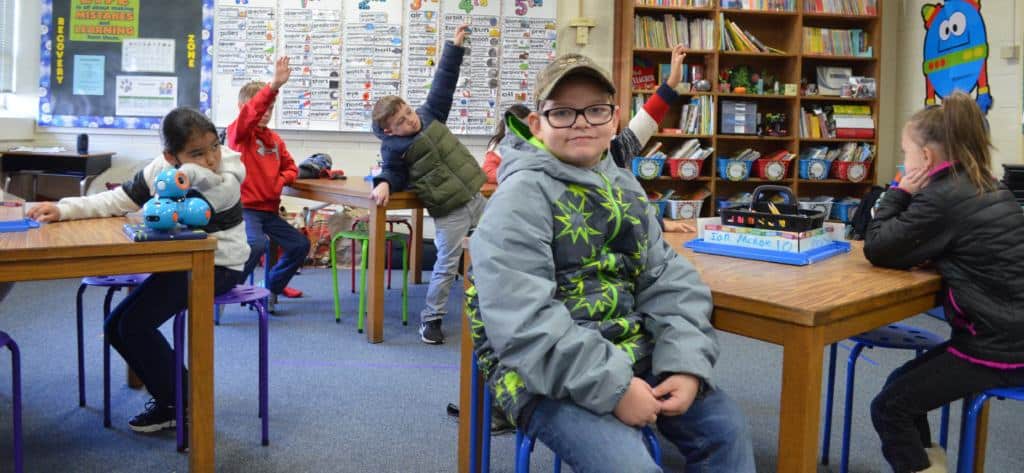

One little difference that ends up being a big difference: in Michigan, teachers don’t have to cover lunch periods and recesses. Assistants or volunteers handle that, leaving teachers with free time to plan. Not so in North Carolina.
And then she settled in to the actual job of teaching, which she says is far different than you realize when you’re just studying to become an educator.
“I feel like it’s really tough to be a teacher,” she said. “Even when you’re prepping, you know it’s tough, but you don’t know how tough it is.”
Fortunately for her, Luersman had a passion for teaching that has helped sustain her though the long days. She has always participated in extracurricular activities, staying after school to host clubs for students. She works over the weekends to make sure she is prepared for the week ahead. The day I met her, she had planned to get to school at 6:15. She got there at 6:30 instead, and said that even losing those 15 minutes threw her.
“If you’re not dedicated to being a teacher, it’s just not going to work out,” she said. “You have to have dedication to your kids, you have to have dedication to what you do.”
Her first job in Moore County was as a second grade teacher, and she continued as a traditional classroom teacher for years until she got the opportunity a few years back to pursue another passion of hers: STEM.
When Luersman was a classroom teacher, her school in Moore County was one of the first in the district to pilot a program that made sure every student had access to an electronic device at school. But she started even earlier, working in Michigan as a student teacher with an educator who did a similar program in her own classroom. She learned a lot about technology from both of those experiences.
Luersman has always had an interest in technology, and as STEM became more a part of classroom instruction, she embraced it. Her favorite part about it is the critical thinking and the collaboration — things she had been taught were instrumental in helping students succeed.
Then she heard through the grapevine that her district wanted to open up a STEM position.
“I really like the idea of just doing STEM all the time. I’ll try it out, and if it’s not for me, I can go back to the classroom,” she told herself. “And then I really ended up loving it.”
Now she splits her time between two elementary schools, both Title I schools. The funding for her position comes from Title I funds. She spends the first two days of the week at one school before switching over to the second school for the latter part of the week.
“I willingly took this position, but you just feel overloaded sometimes with the two schools,” she said.
All day long, Luersman teaches STEM to different grades, and after school she does robotics with students. She has students for a total of about 45 or 50 minutes at a time, and so she said one of the most important skills she’s developed is being prepared. That involves the aforementioned weekends, after-school, and before-school preparation.
“If you’re not prepared, the students are going to know you’re not prepared. And definitely with only 45 or 50 minutes, I definitely need to be prepared,” she said. “I only see them once a week. What a waste of time if I’m not prepared.”
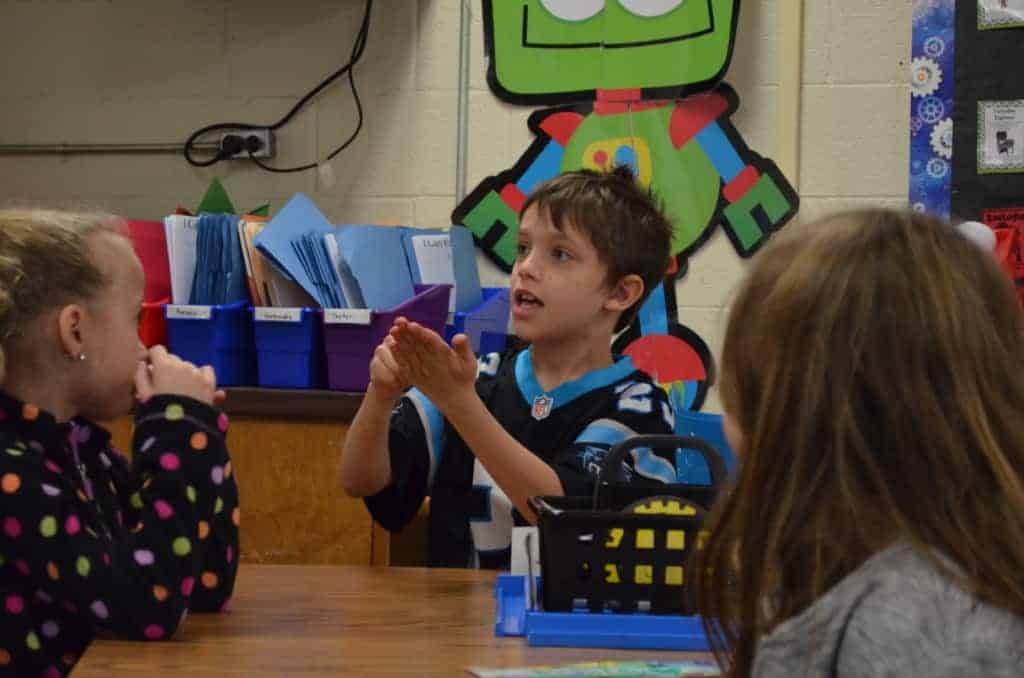

Along with that comes reflection: another important skill she said every teacher needs to have.
For instance, on the day I came in, Luersman had told the students not to bring their own Chromebooks because the school had some. That led to unexpected problems.
“And then I realize that some of the fifth graders who I thought would know their username and password do not,” she said.
She lost 10 minutes to that mistake, which doesn’t seem like much, but with a short class, that’s 10 minutes that could have been spent instructing. So, reflect and adjust: next time she is going to tell the students to bring their own Chromebooks.
Classroom management is another must-have skill for teachers, Luersman said. And that’s not something she came with naturally.
“I will tell you my first year, I thought I had management,” she said. “You just learn the skills that work and don’t work.”
Learning for her has been a process of trial and error, but also included instruction through extensive professional development opportunities. She does professional development wherever and whenever she can. Many of Luersman’s classroom strategies, instructional approaches, and STEM curriculum ideas come from professional development.
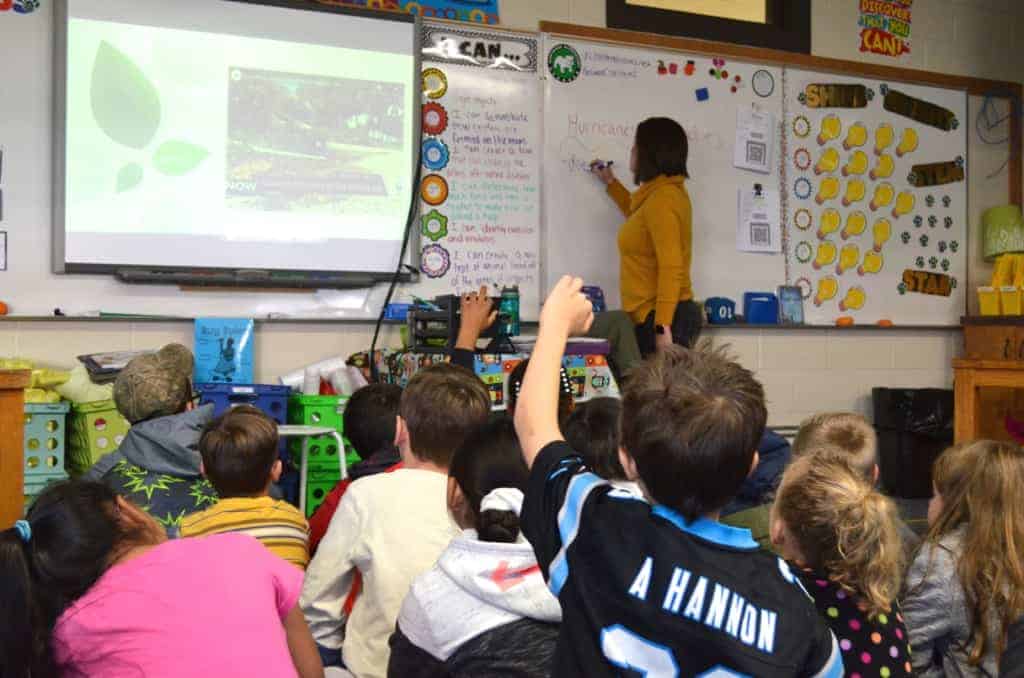

In 2018-19, she joined the Kenan Fellows, described on its website this way:
“Founded in 2000, the Kenan Fellows Program for Teacher Leadership addresses the critical need for high-quality professional development for educators, and is the largest (science, technology, engineering and math) STEM-focused teacher leadership program in North Carolina.”
Through the program, Luersman got access to even more professional development, including a week at the North Carolina Center for the Advancement of Teaching.
“You can get torn down a lot … by everything that’s going on. You can feel overwhelmed. But sometimes when you’re around other educators who are awesome and amazing, you can feel uplifted,” she said of the experience.
She has even gone on to earn a master’s in school administration. Luersman graduates from the University of North Carolina at Pembroke in December. She decided to do that because she wants to make a different kind of difference in North Carolina public education one day.
“Seeing North Carolina, and comparing it, and seeing things that I wanted to change, I was really interested in one day becoming an administrator,” she said.
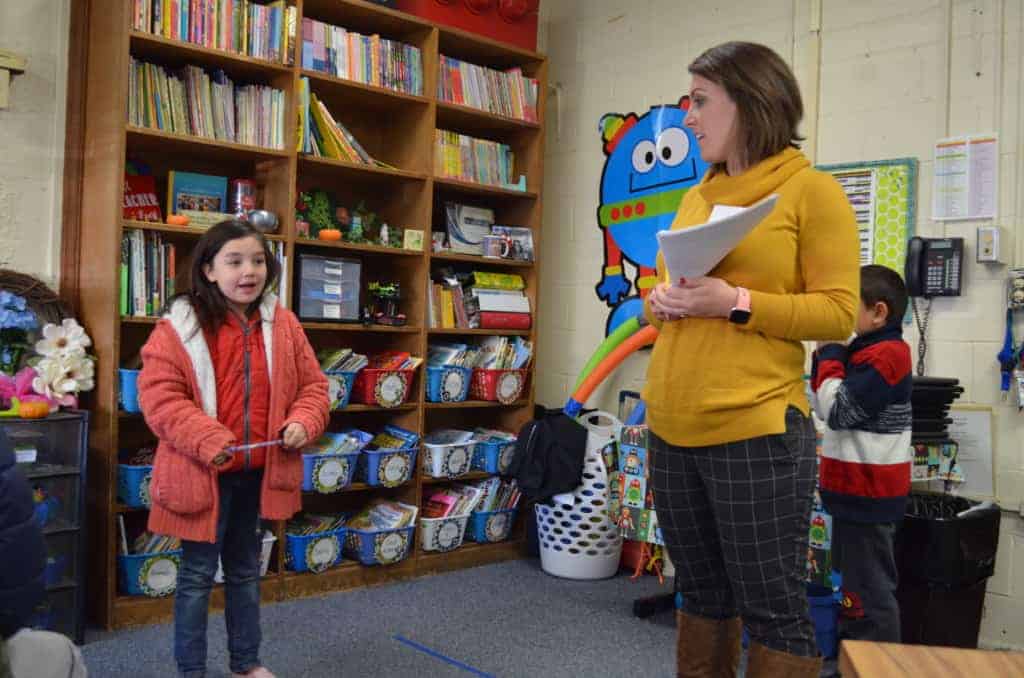

But don’t worry — she has no plans to stop what she’s doing any time soon.
“Maybe in the next few years if an opportunity opens up, but I still love what I do,” she said.
Luersman’s work in Title I school is one of the reasons for that love.
“I don’t know that I would want to not teach in a Title I school, because I feel like I make a huge difference,” she said. “They need more than just the curriculum.”
Luersman starts each of her STEM classes by having the students tell her something good from their lives. It’s one of the ways she shows them that she cares what’s happening with them. And that’s important, she said. Students aren’t just going to sit there and absorb what a teacher is telling them. They want to know that the teacher is invested in them.
“If you don’t build relationships with students, they’re not going to want to learn,” she said.


